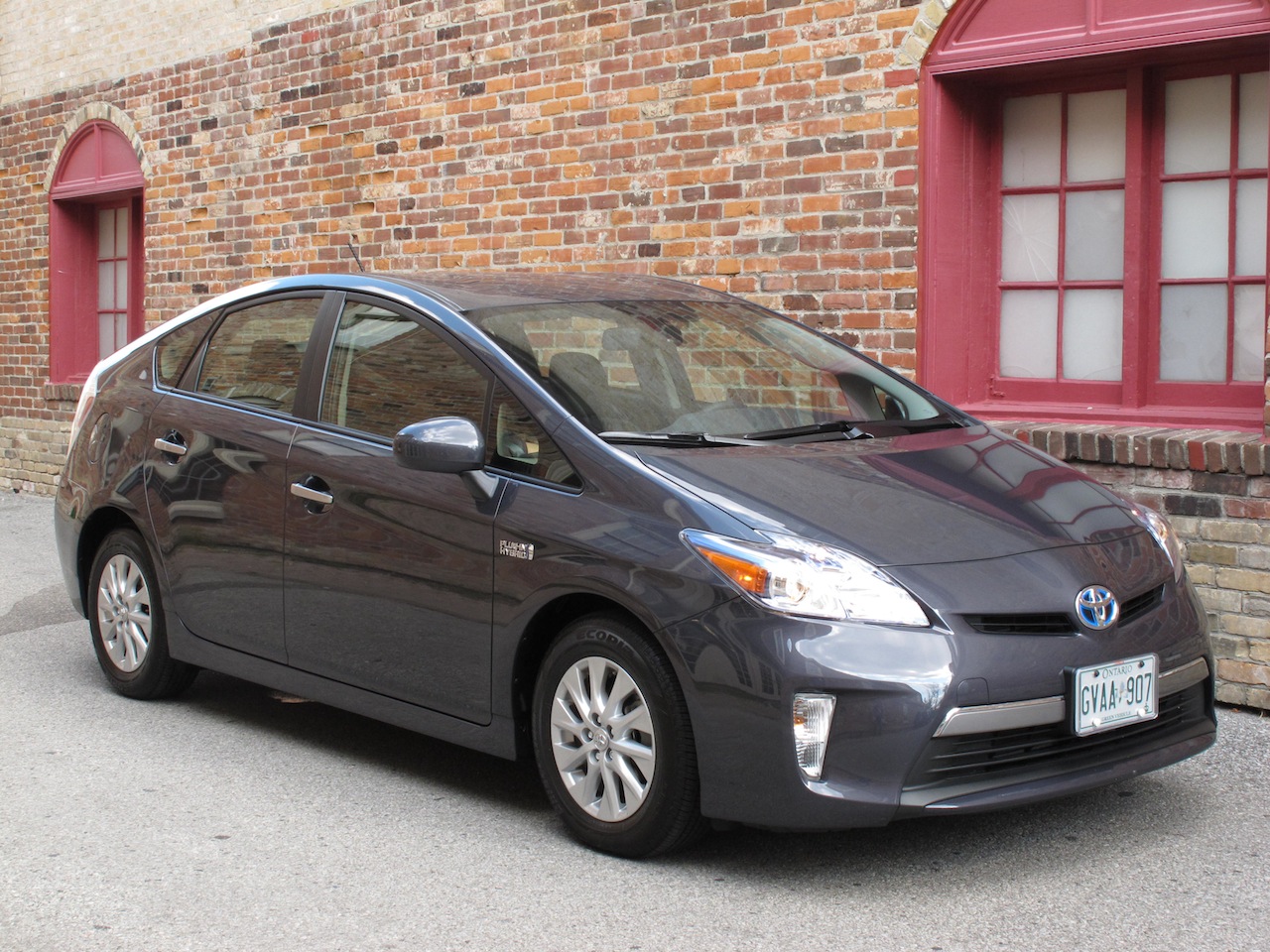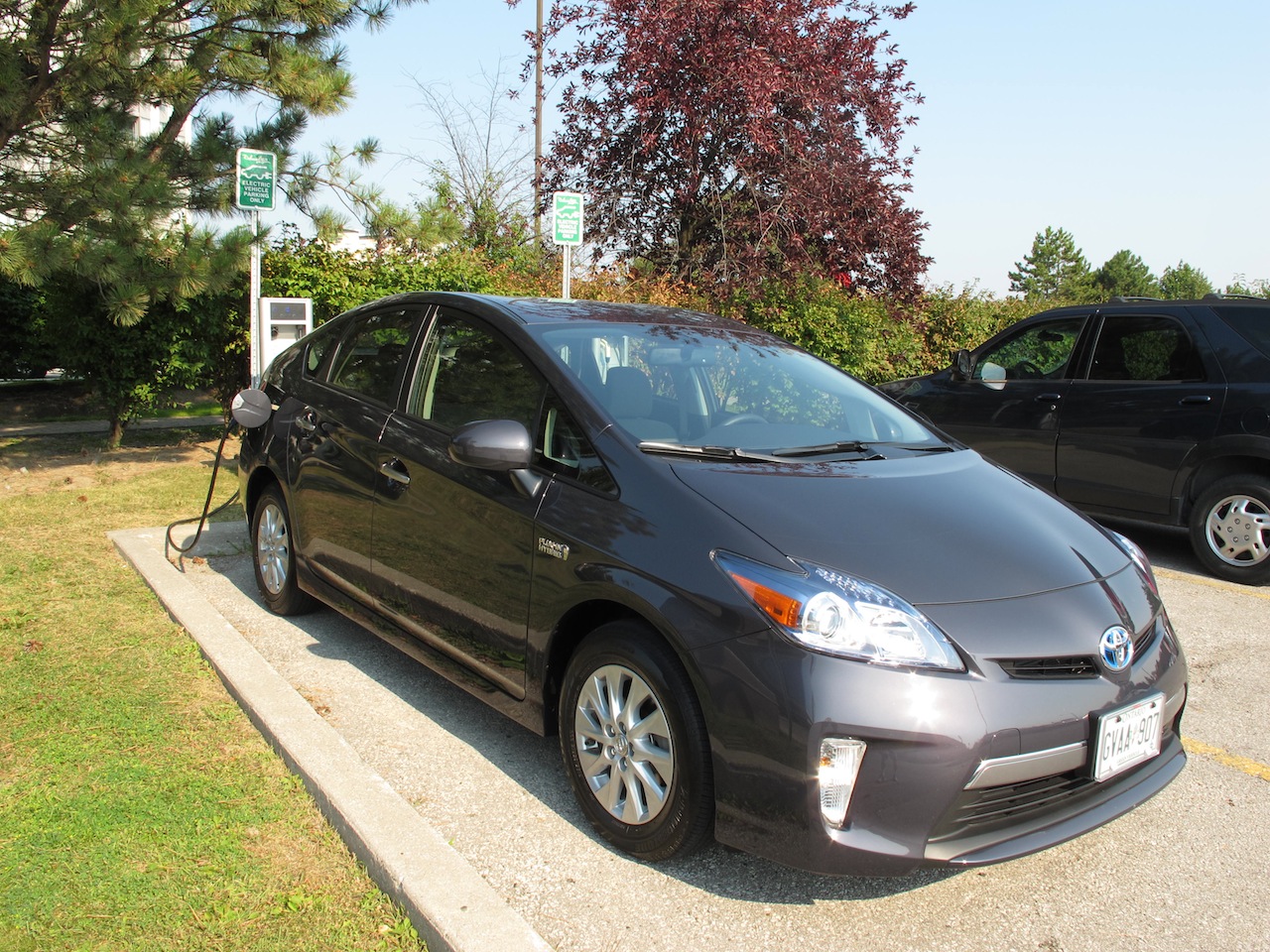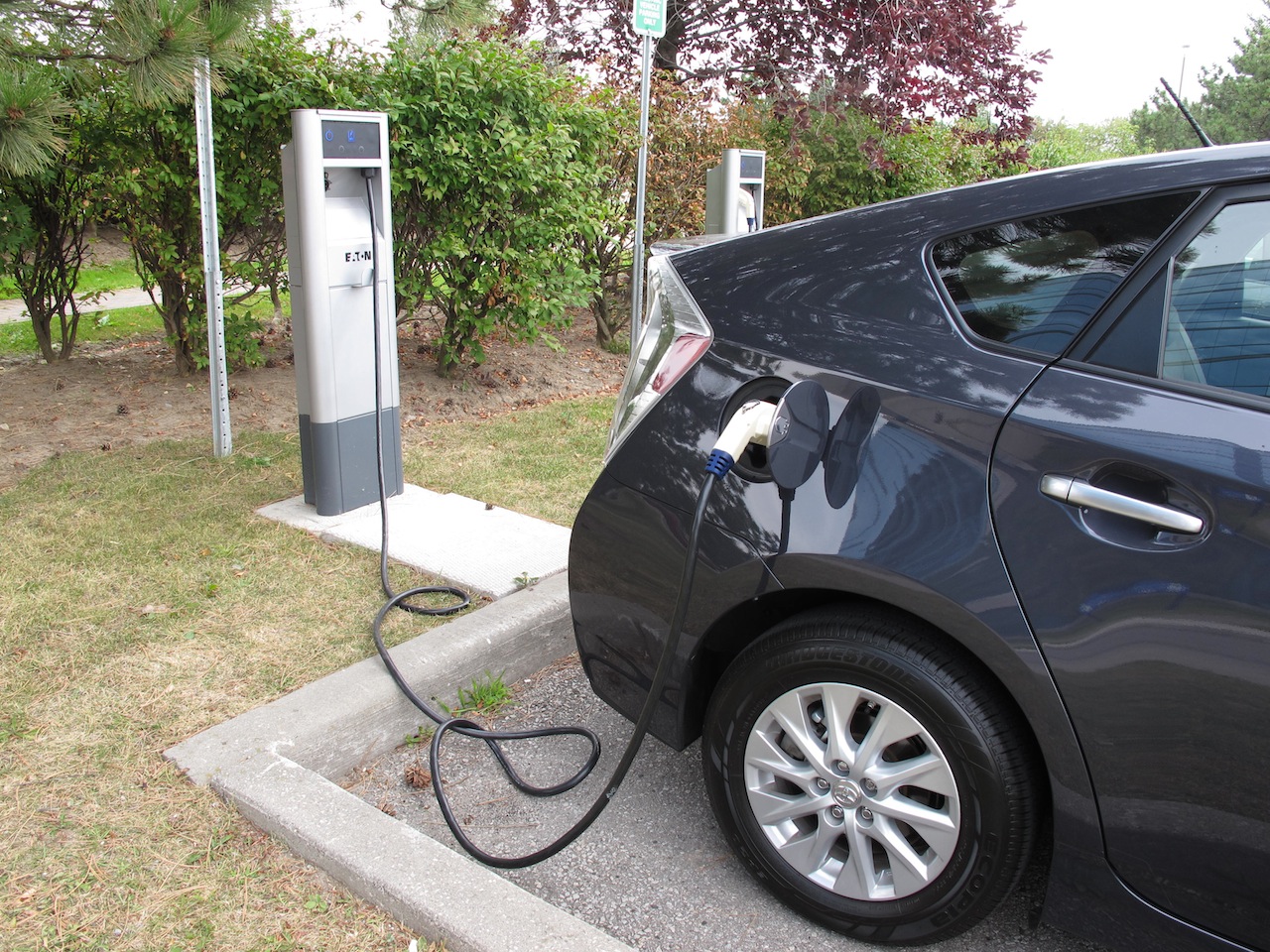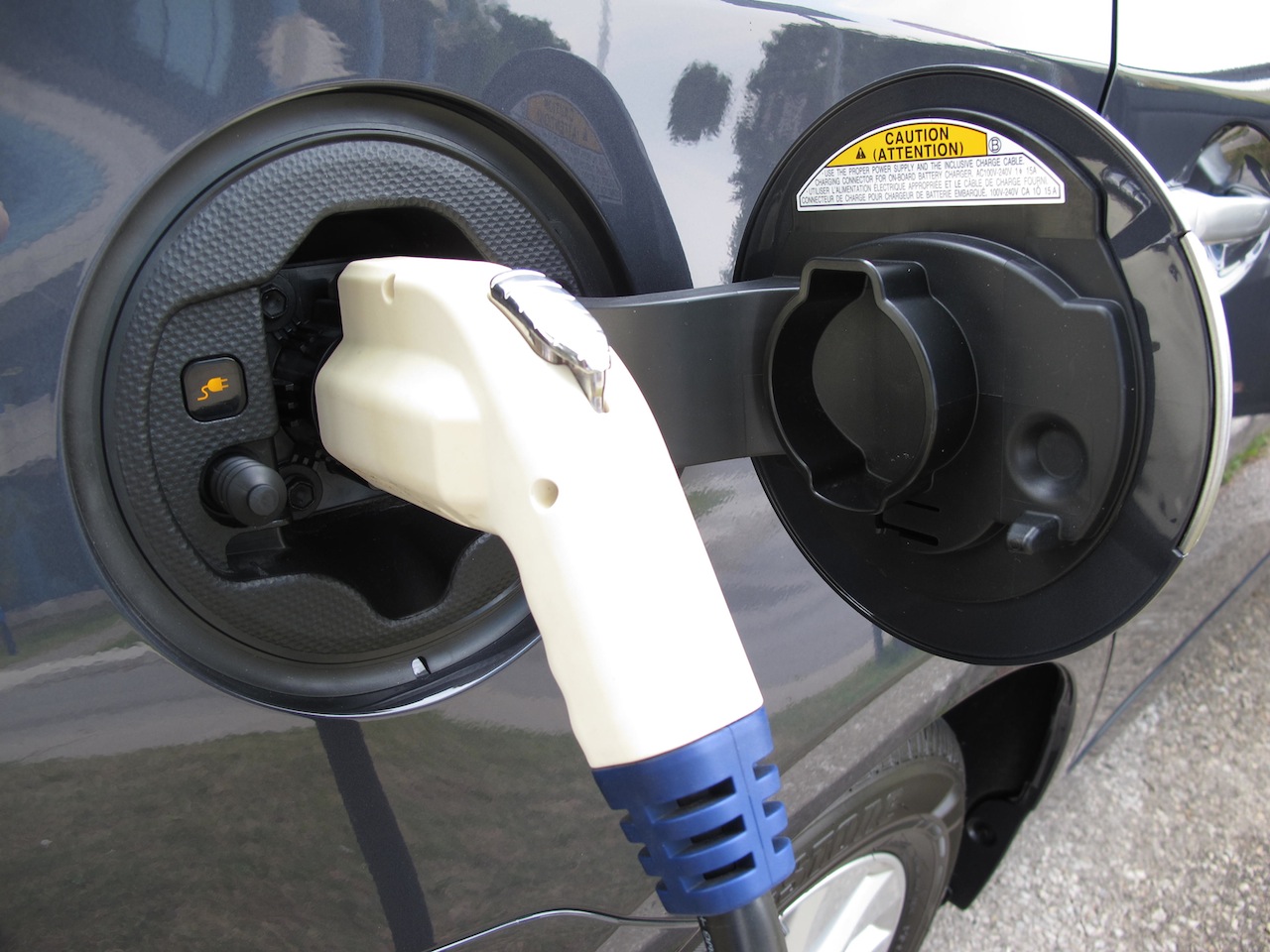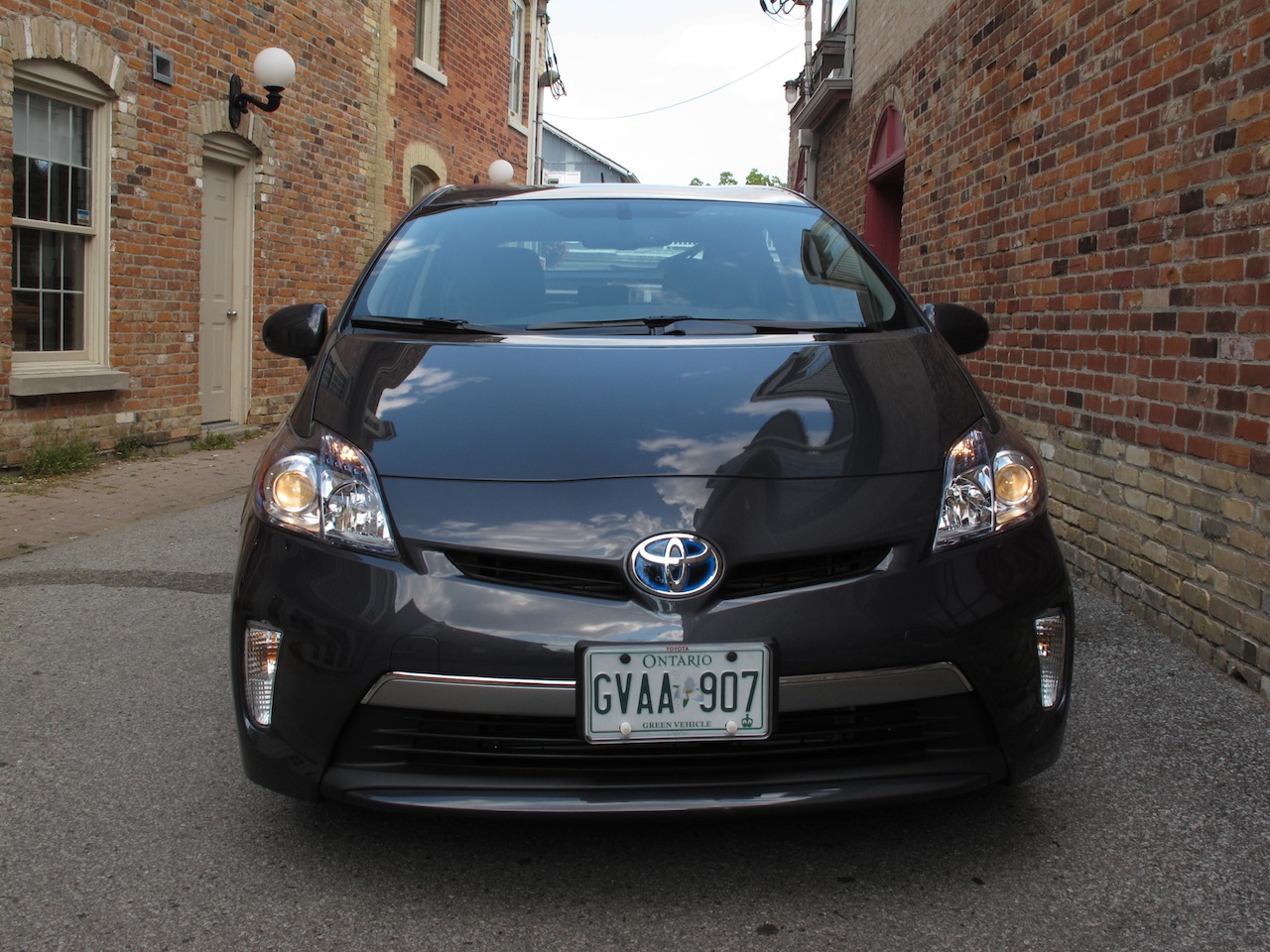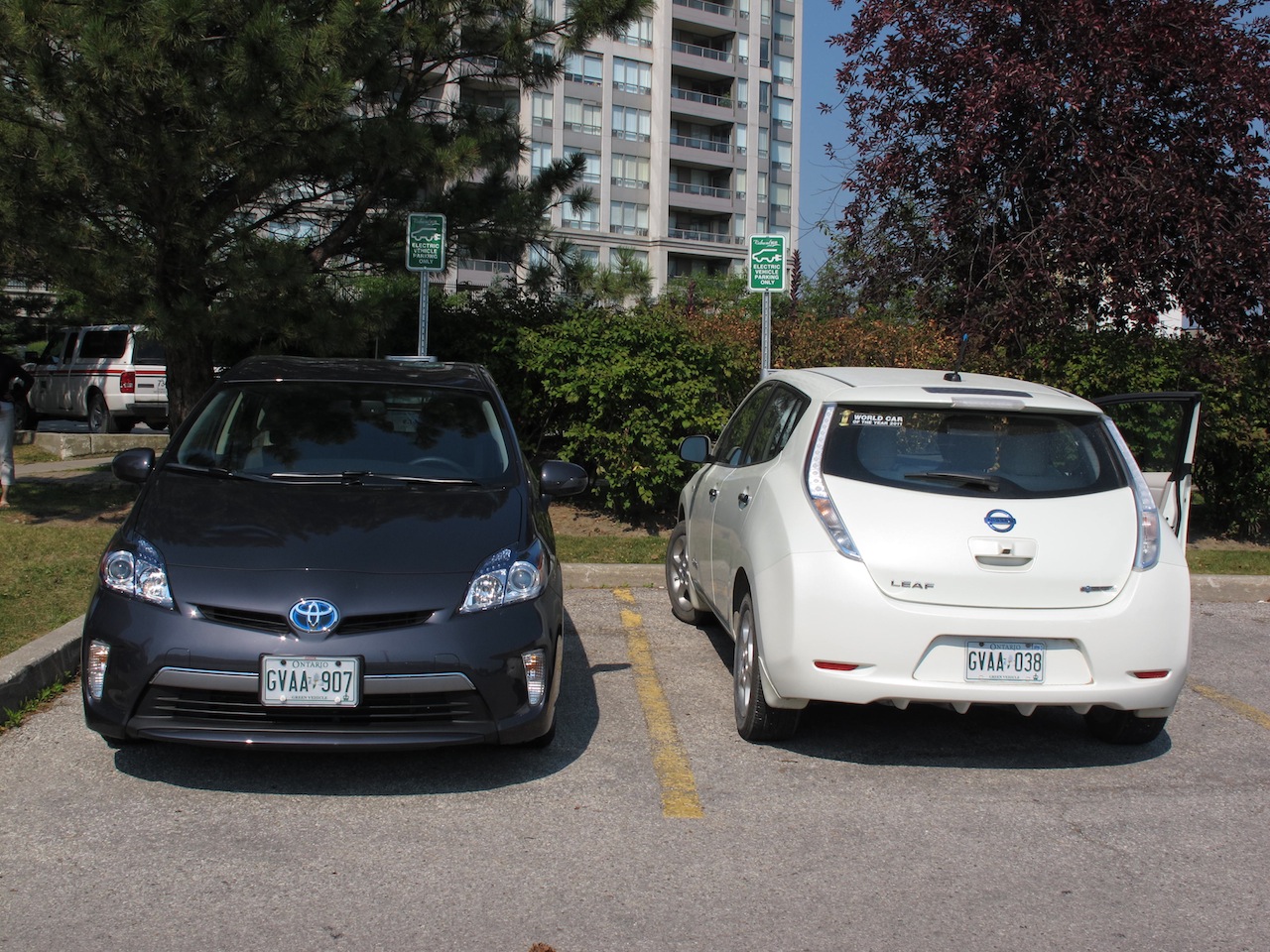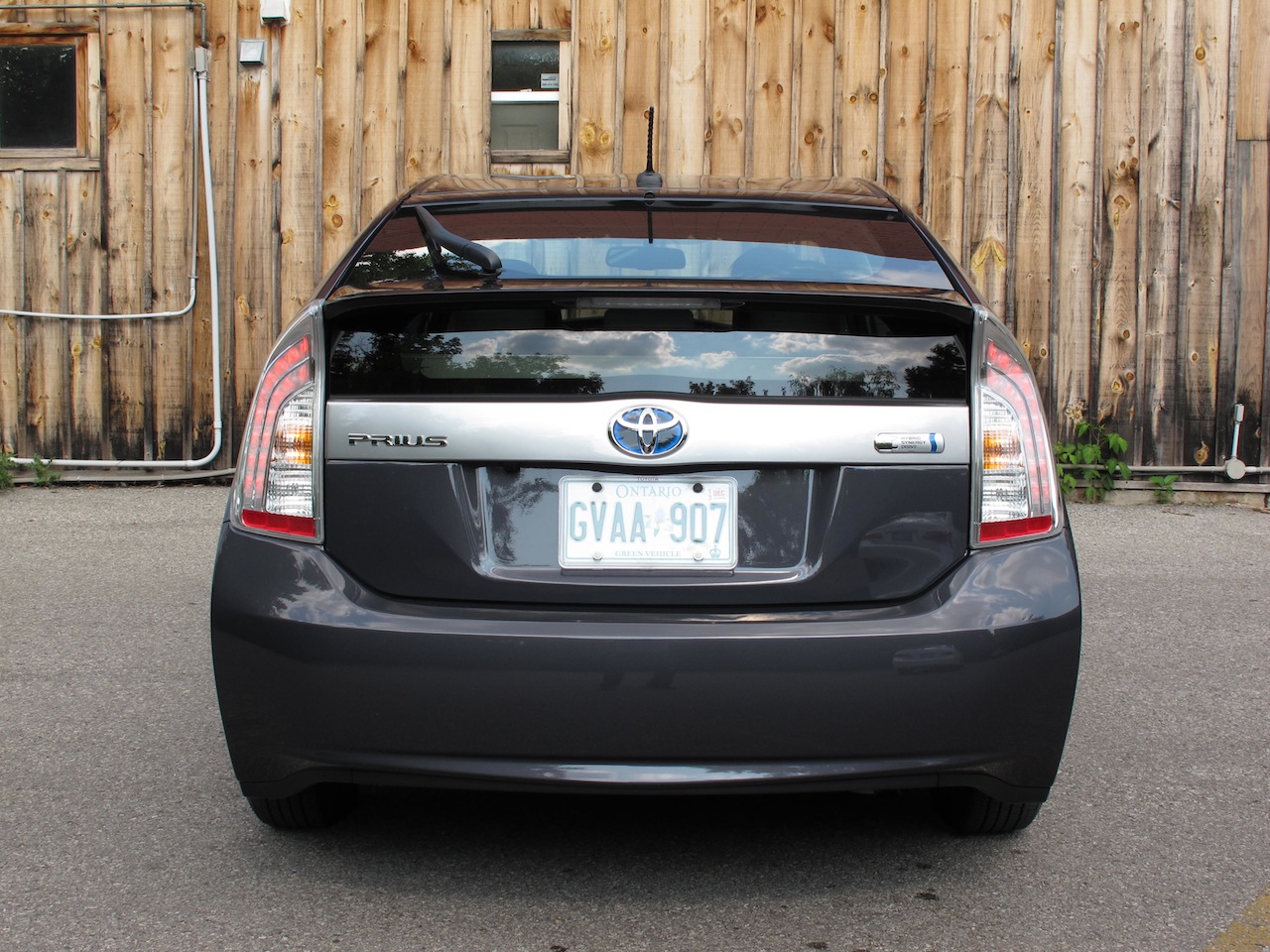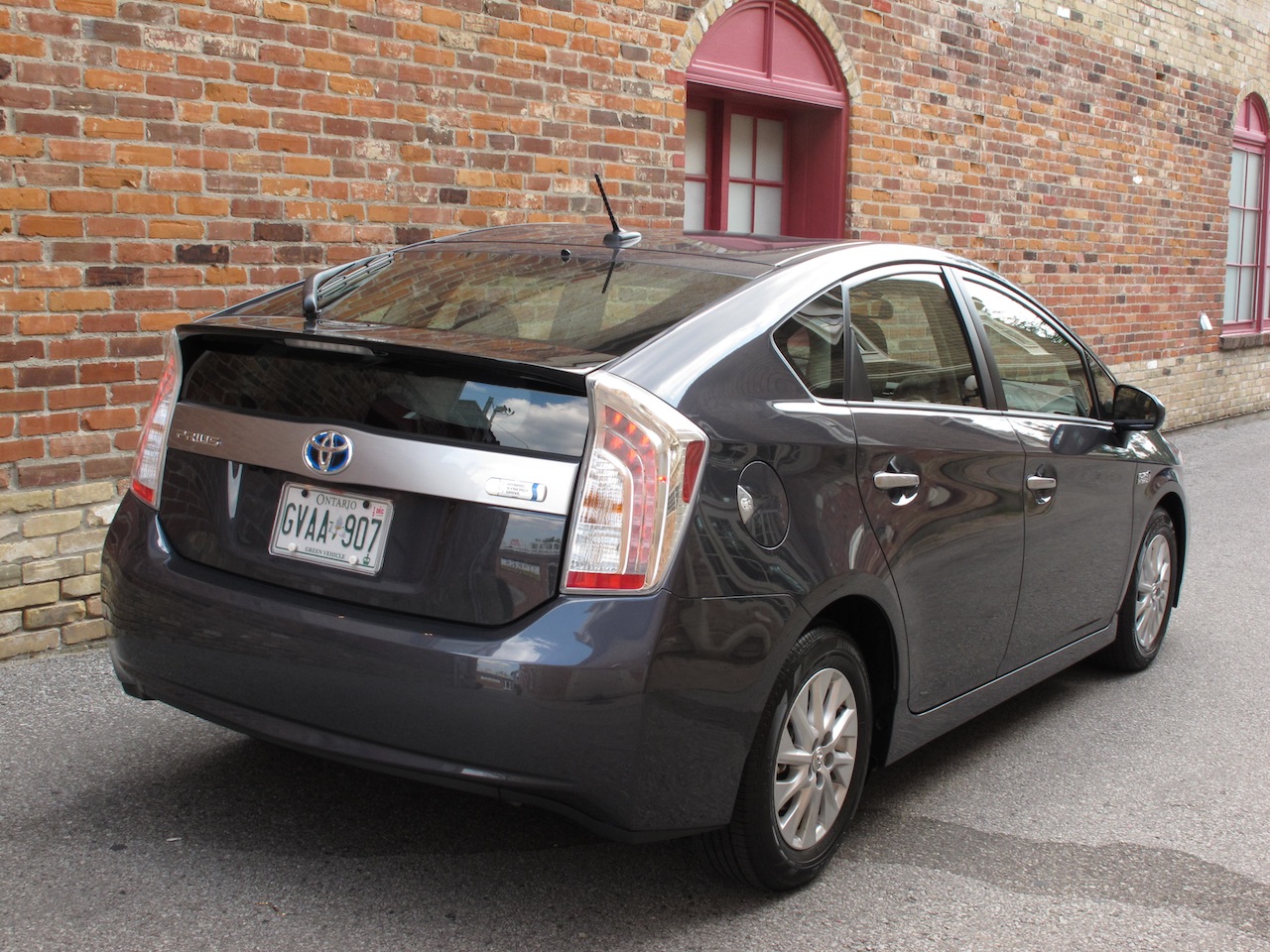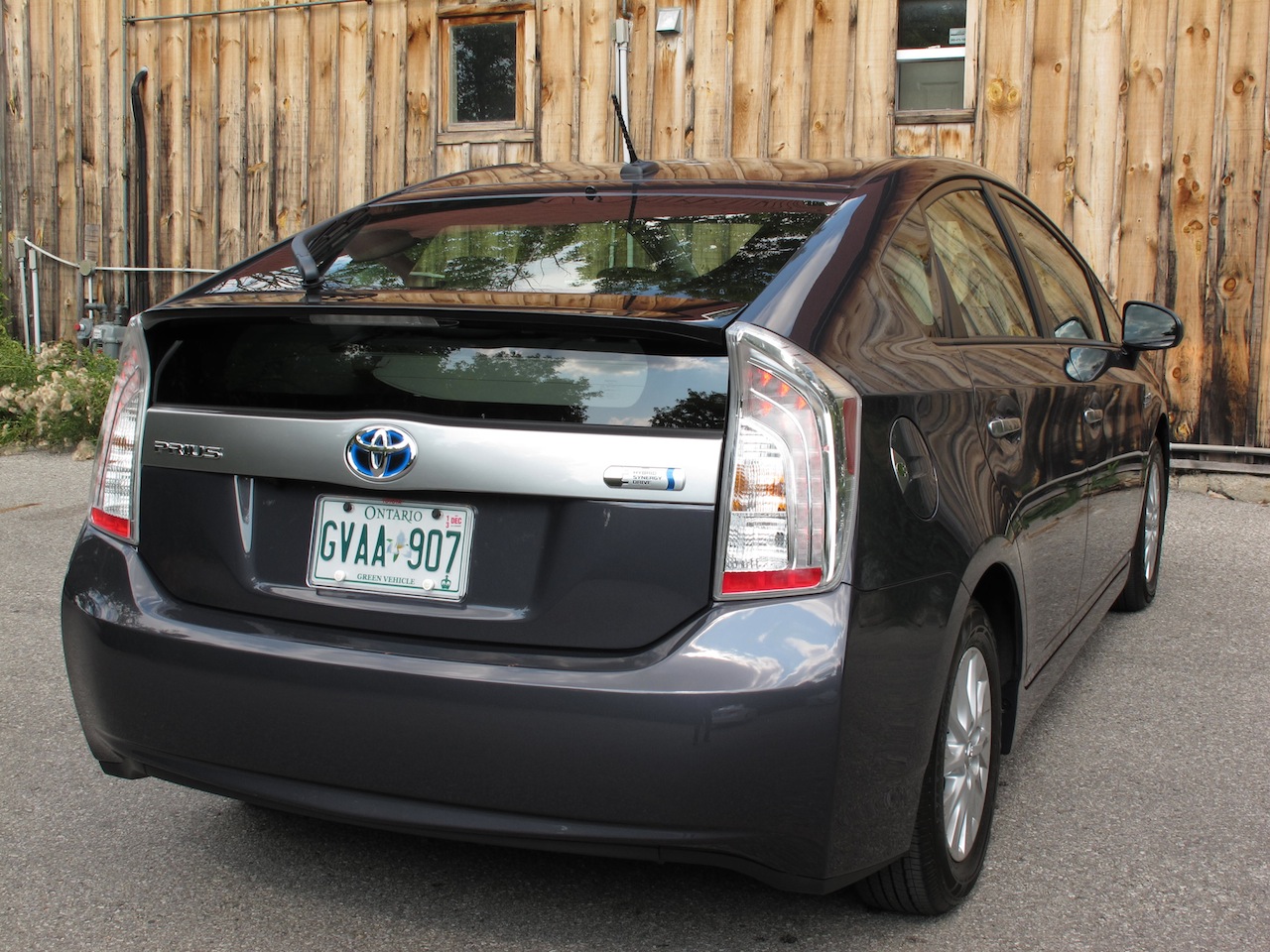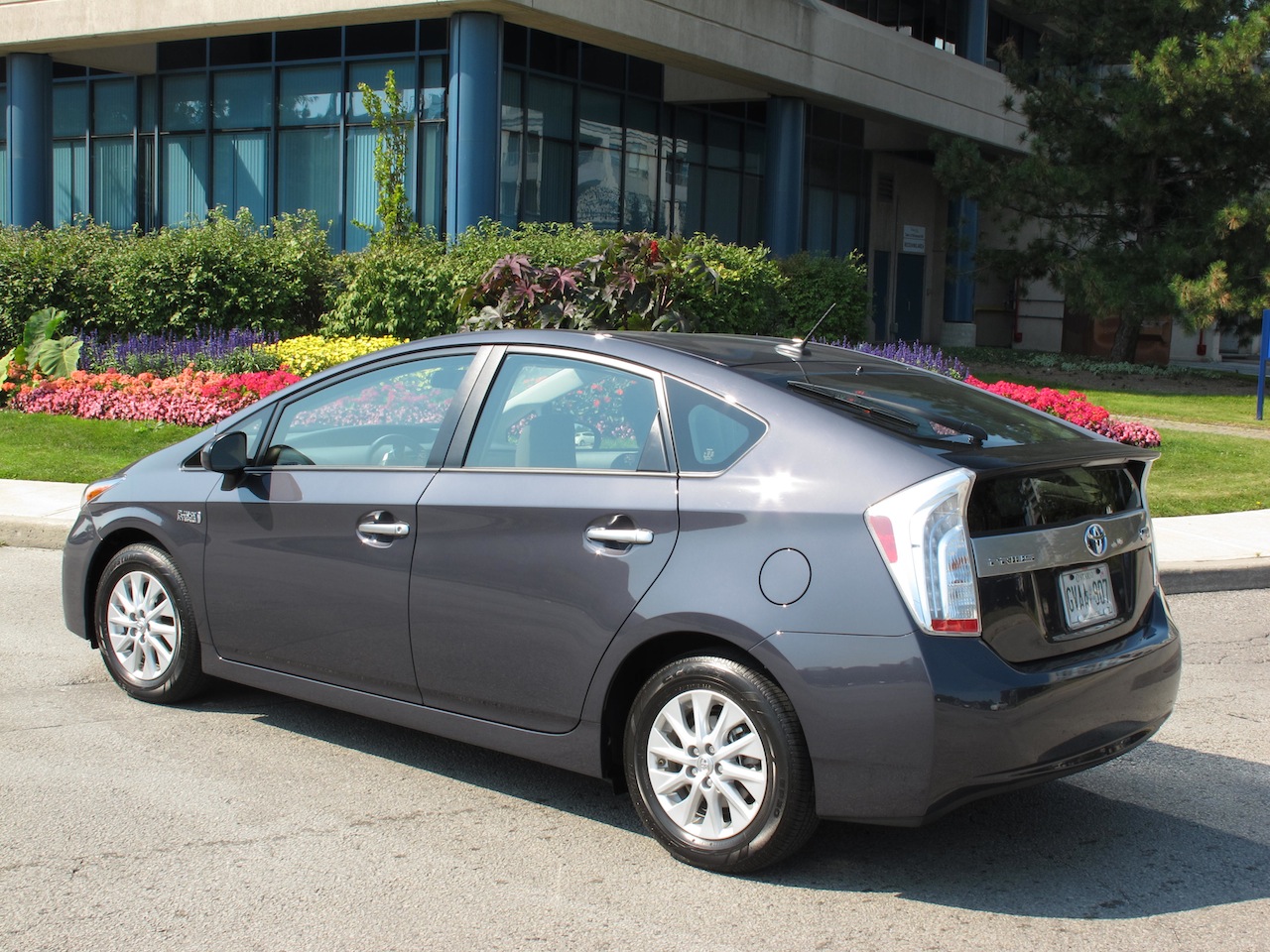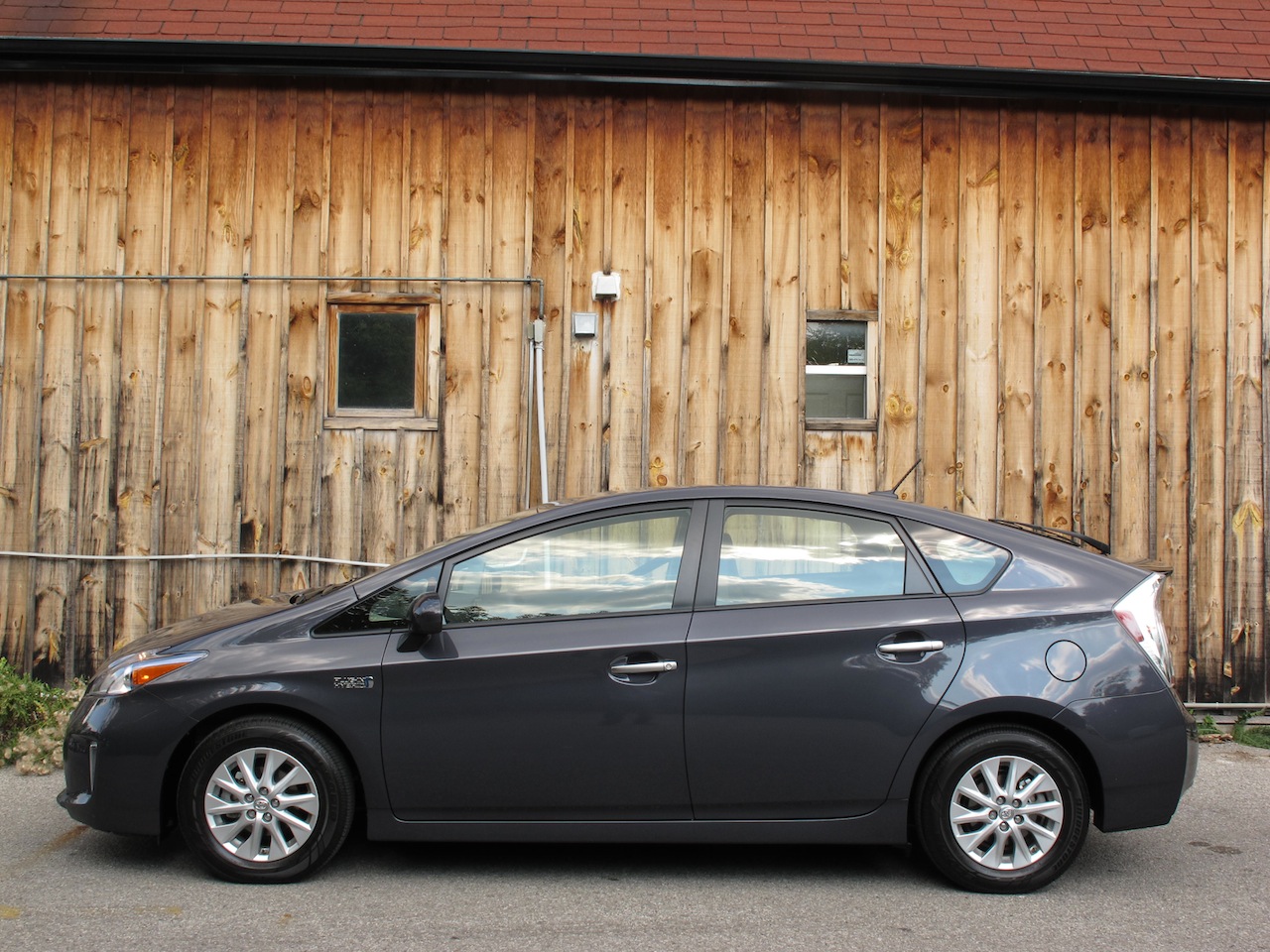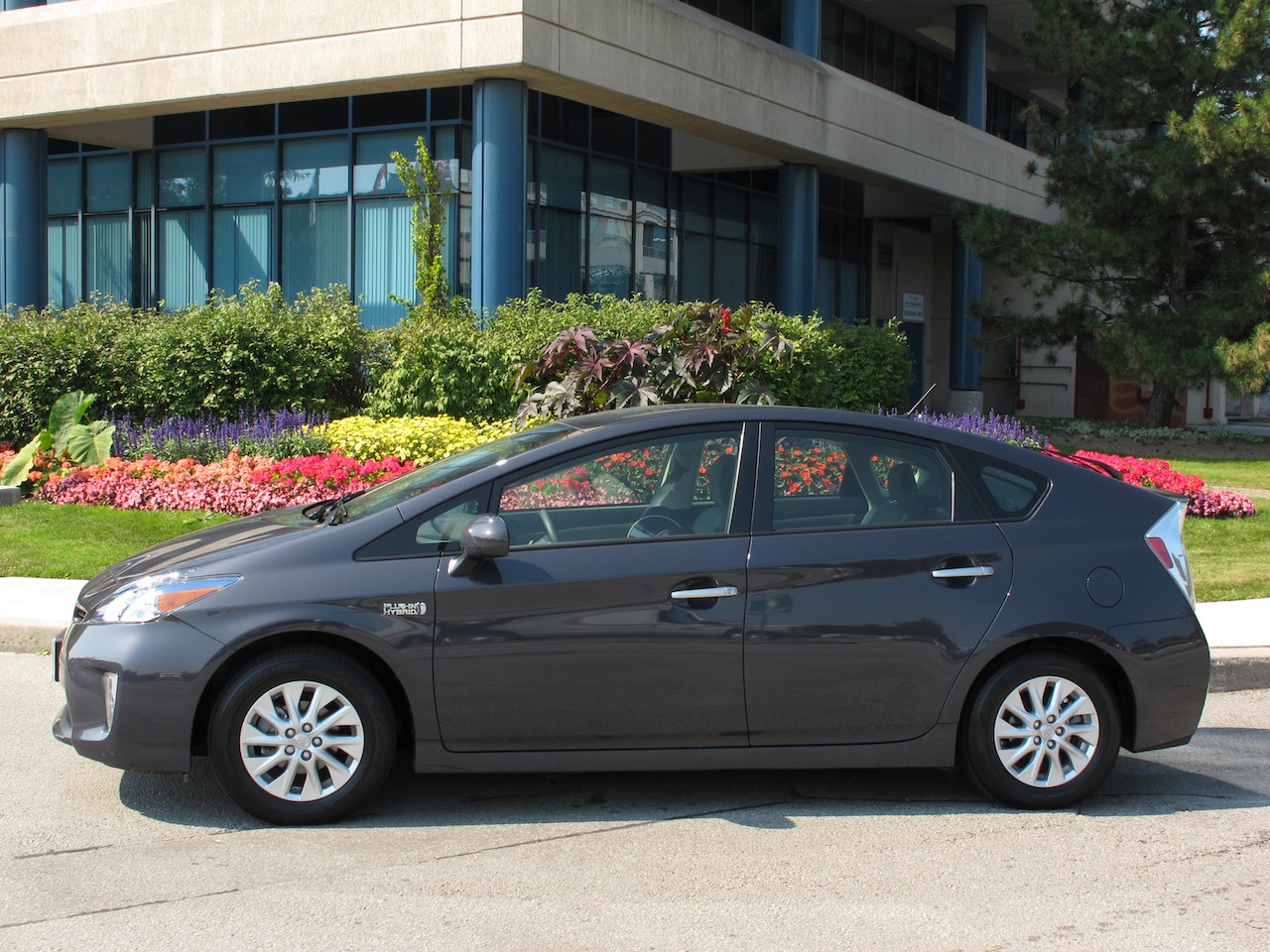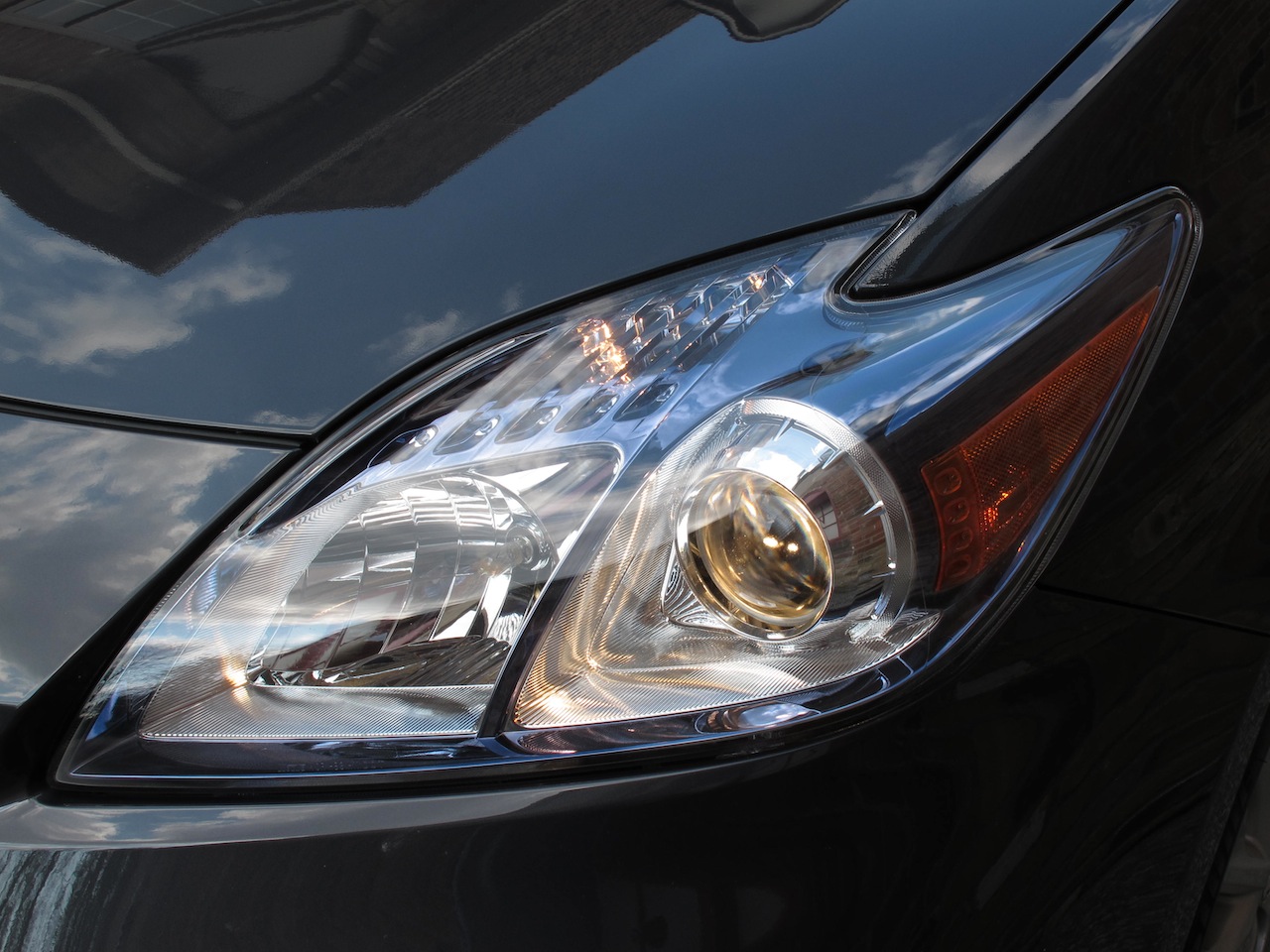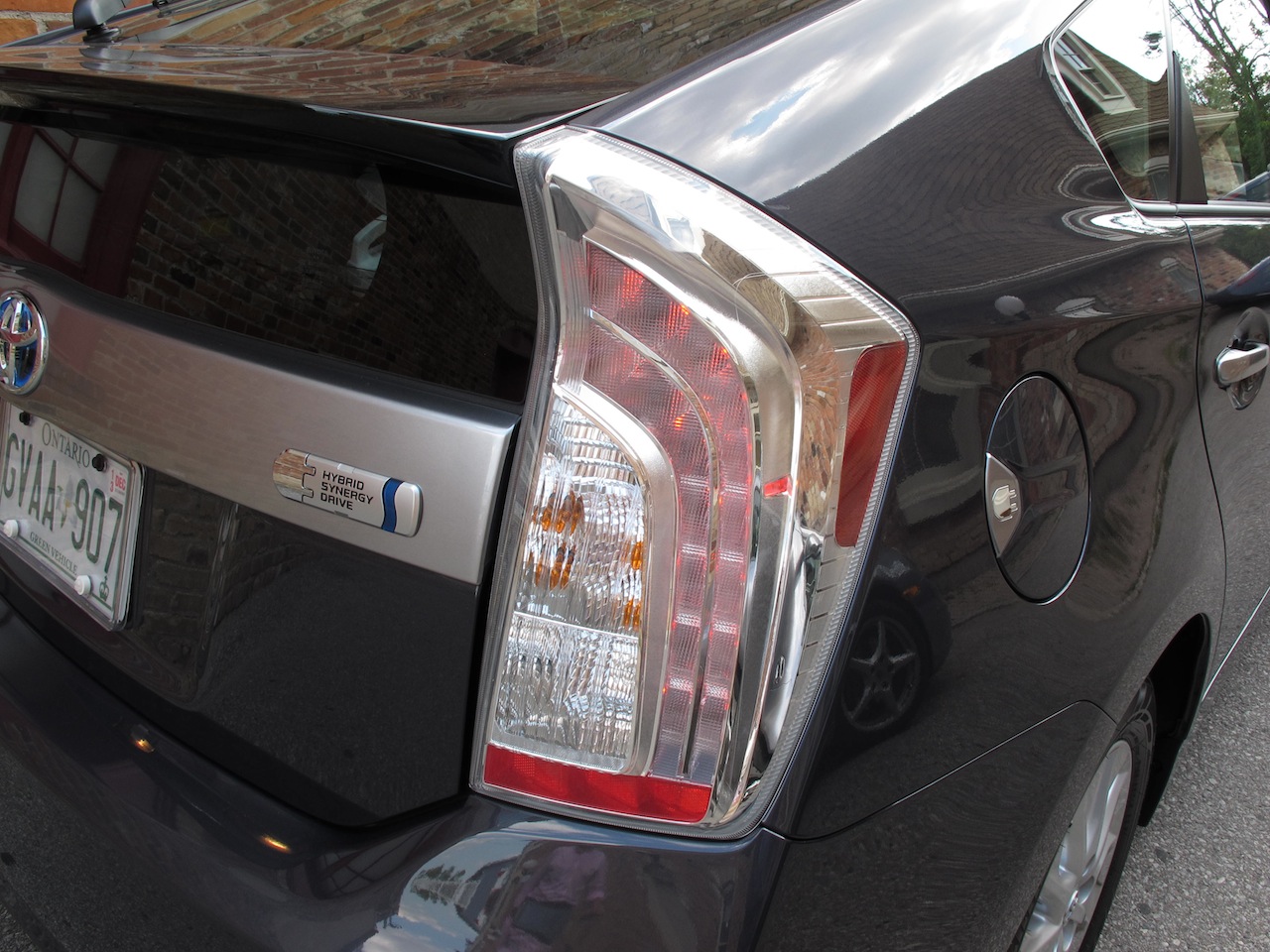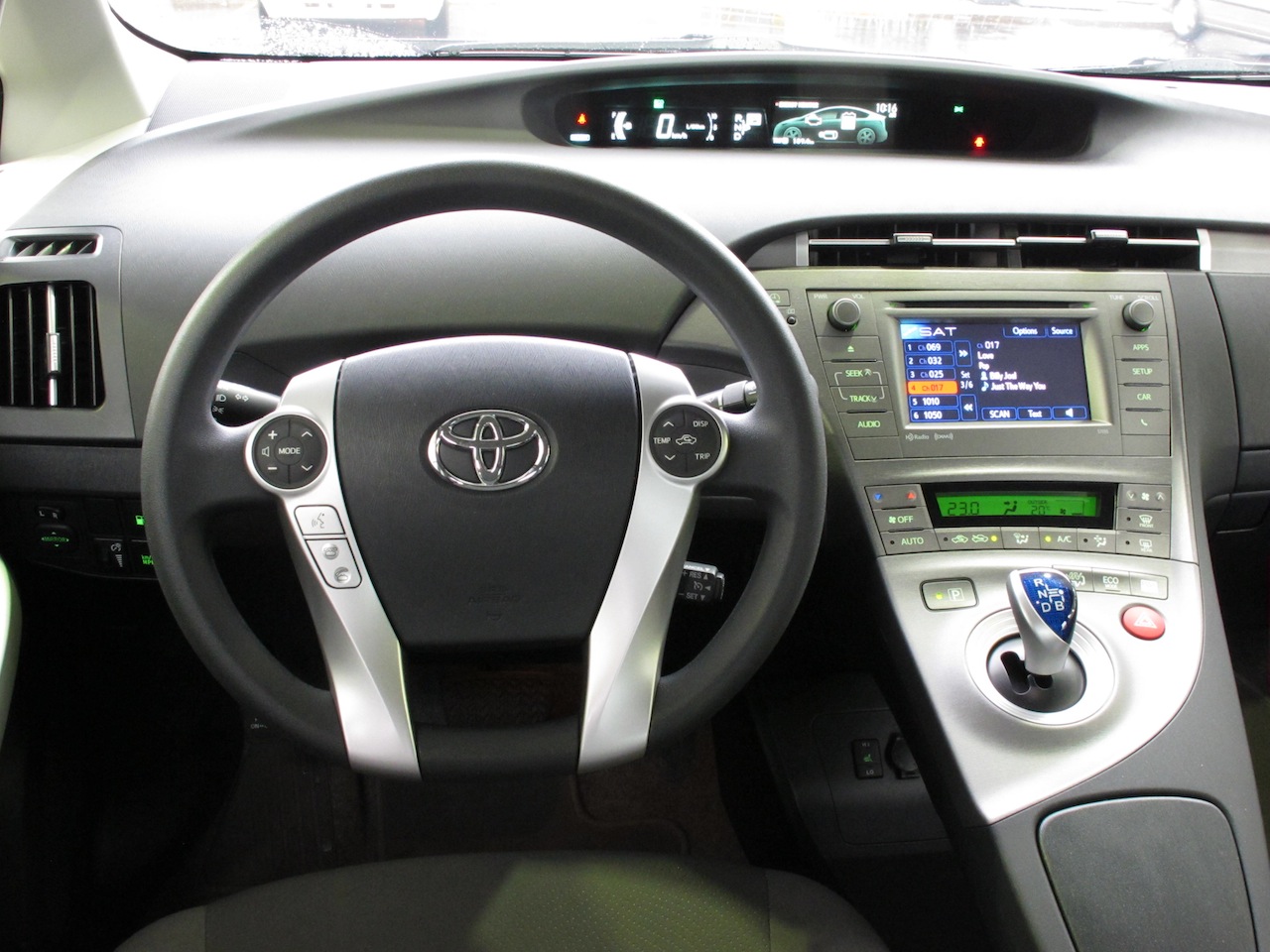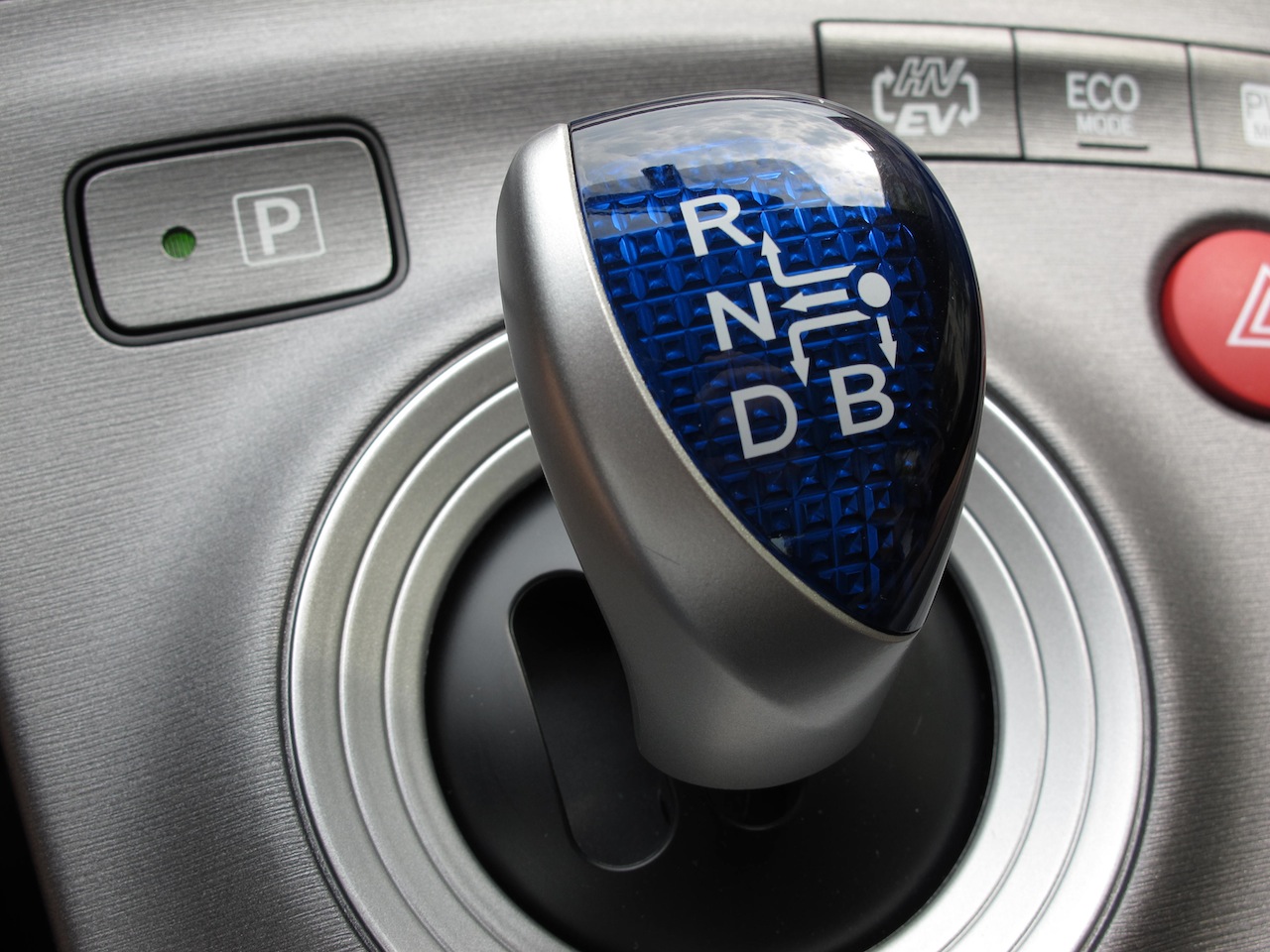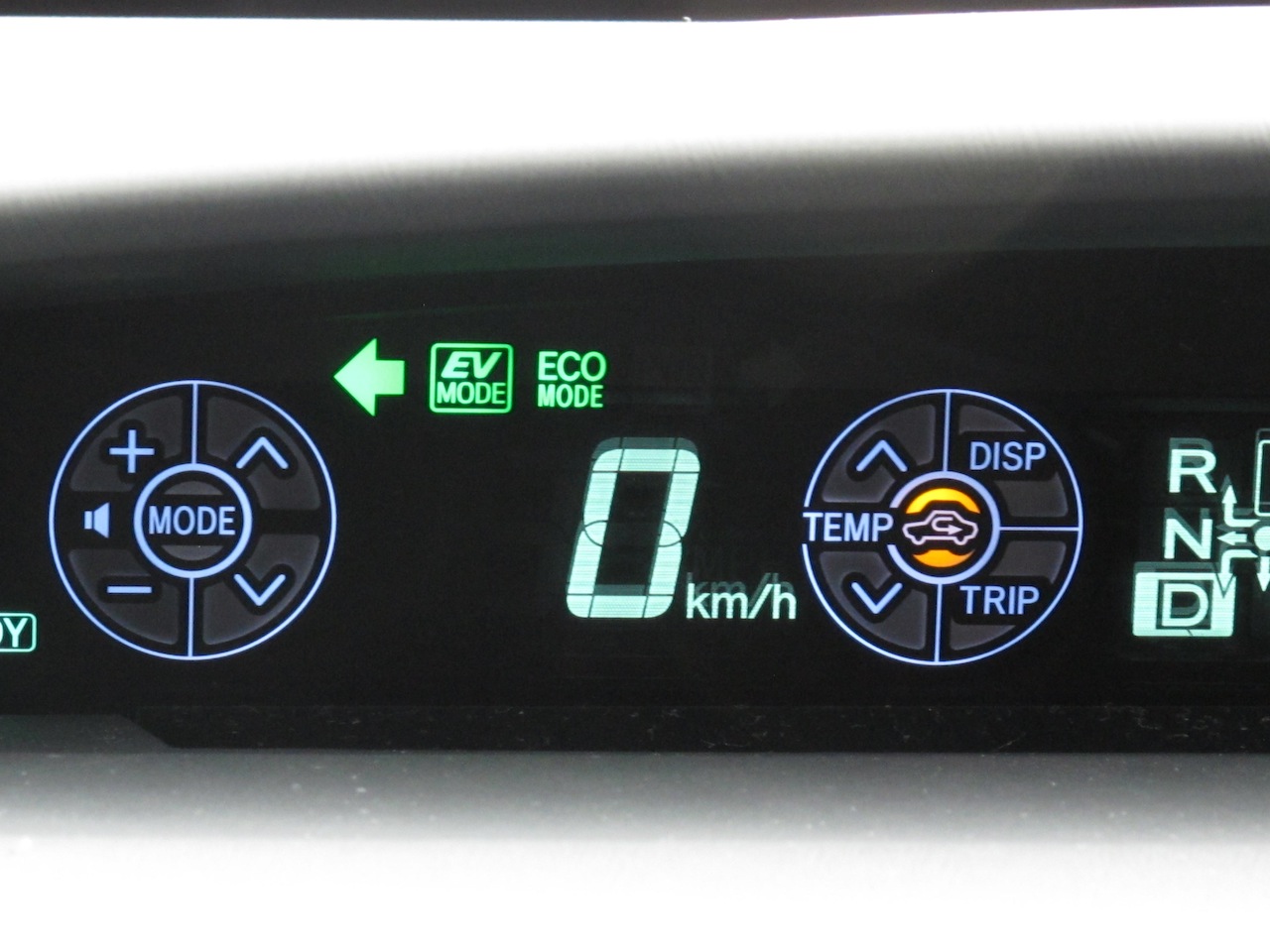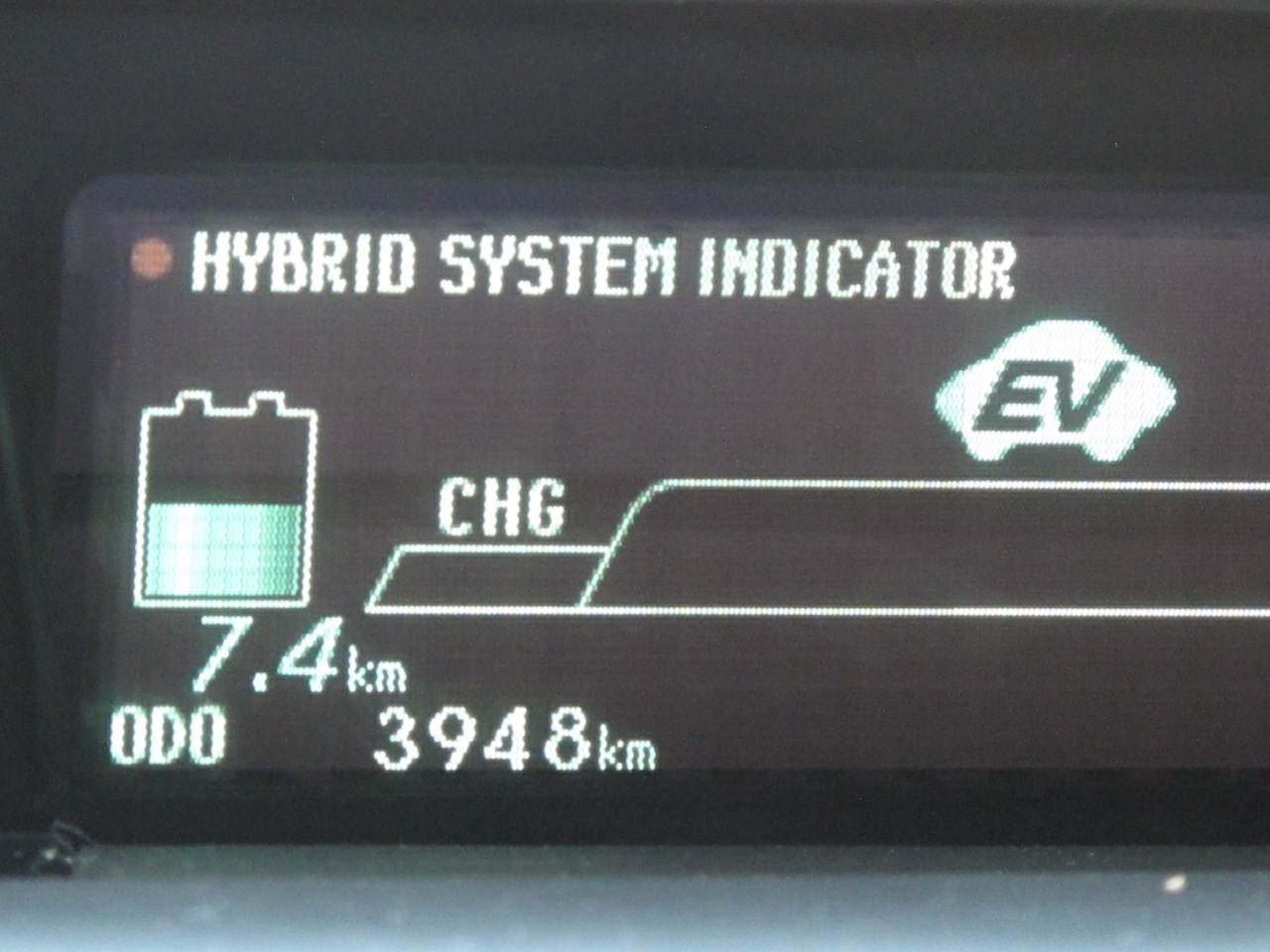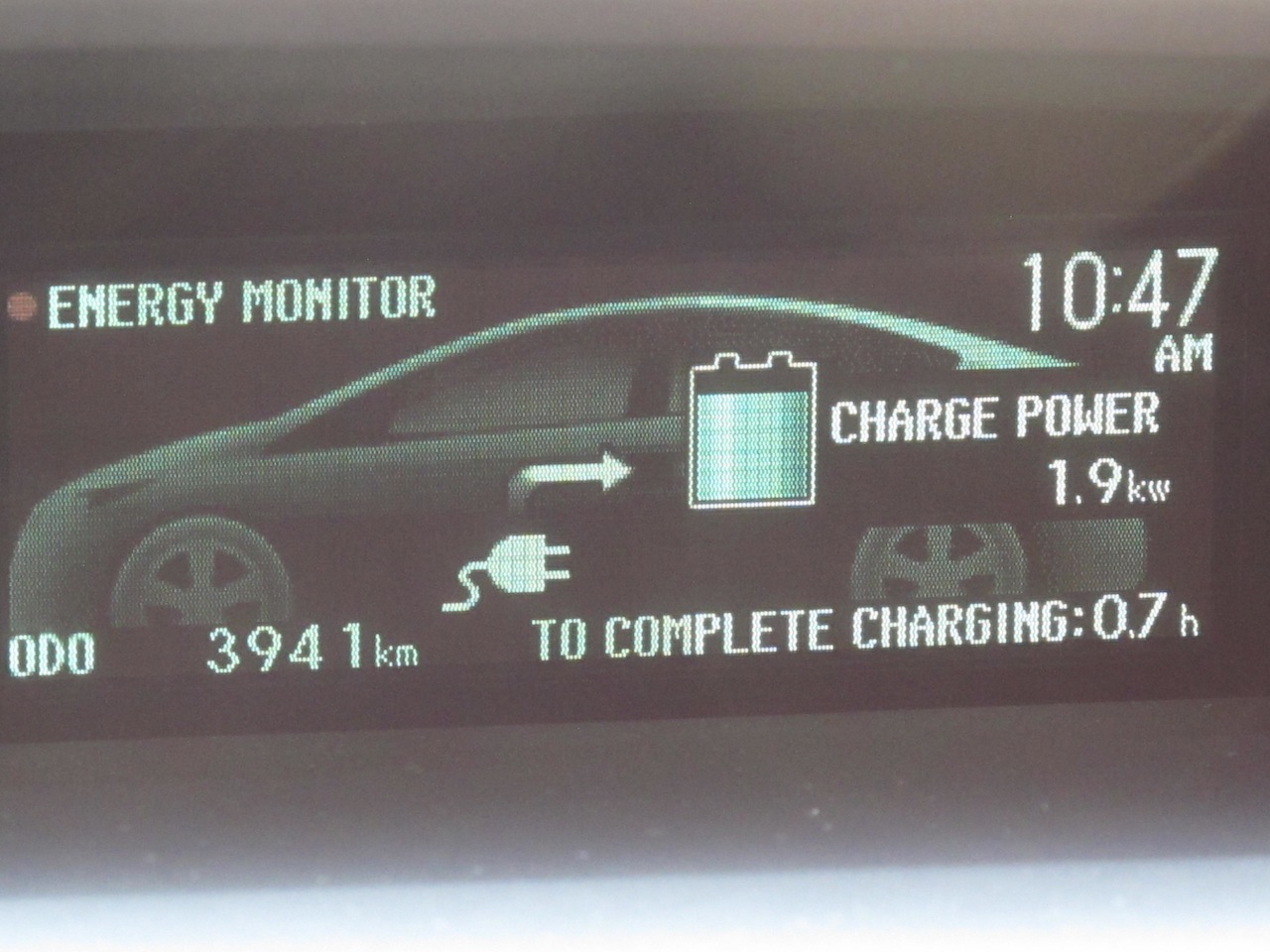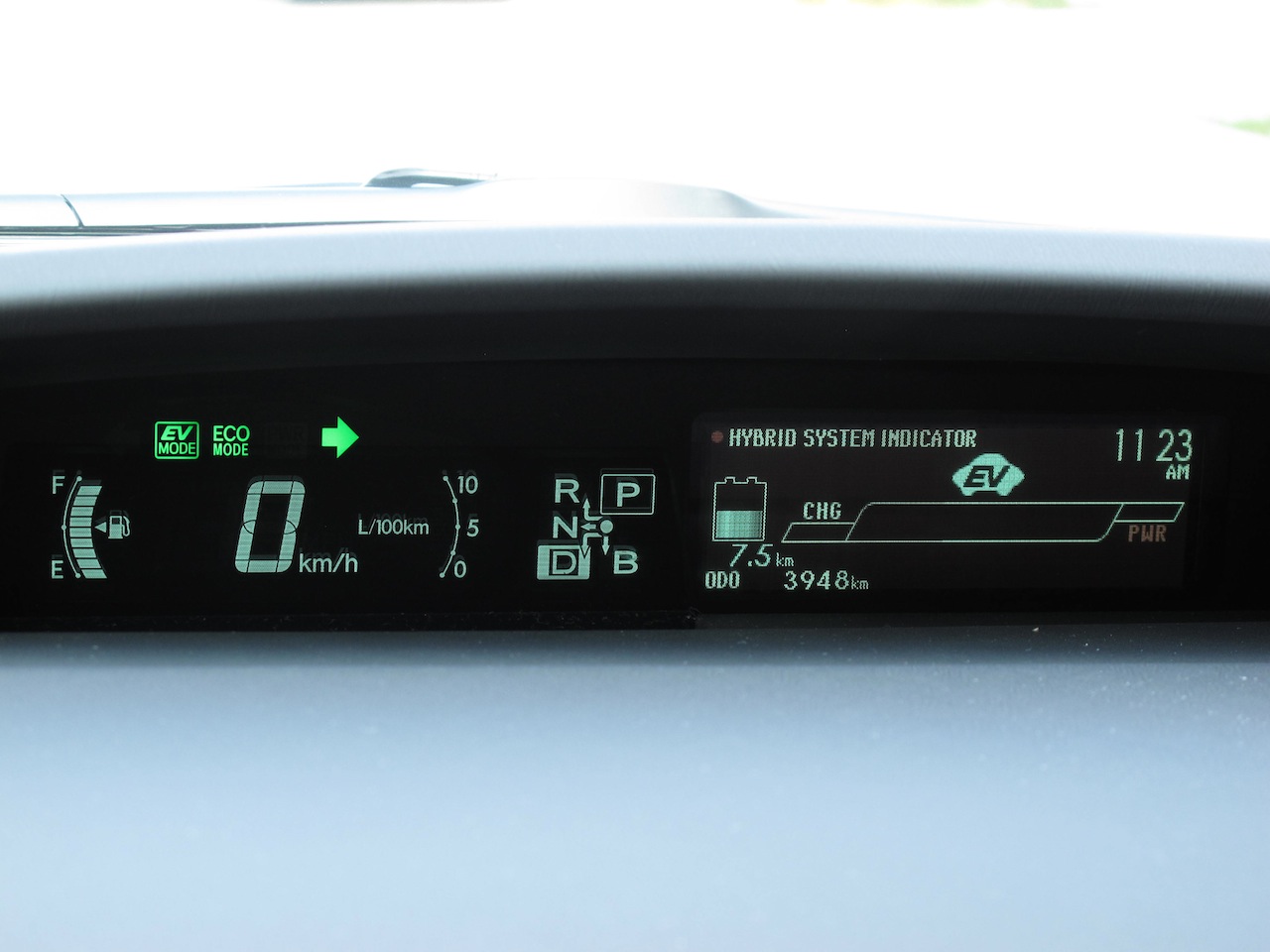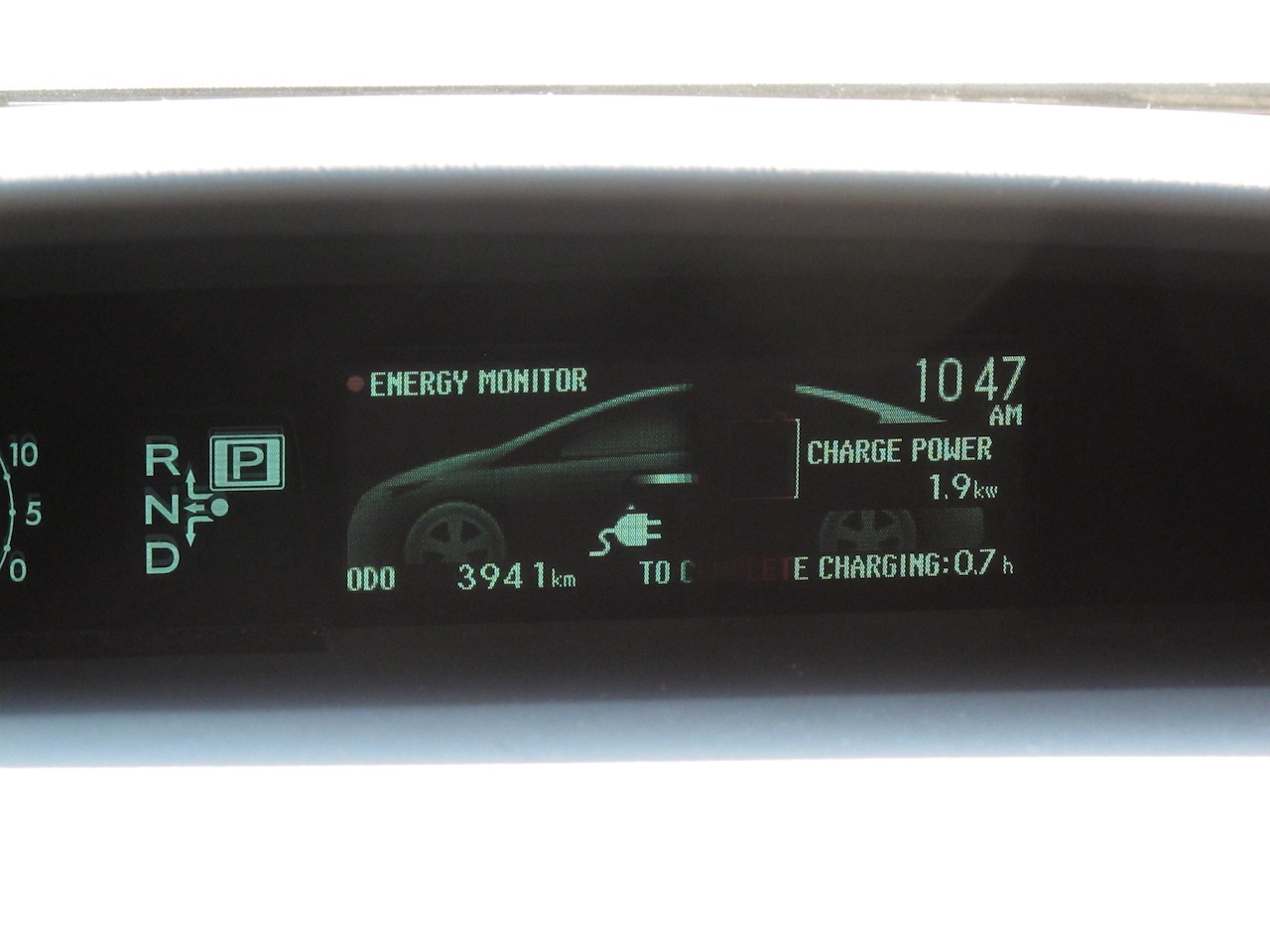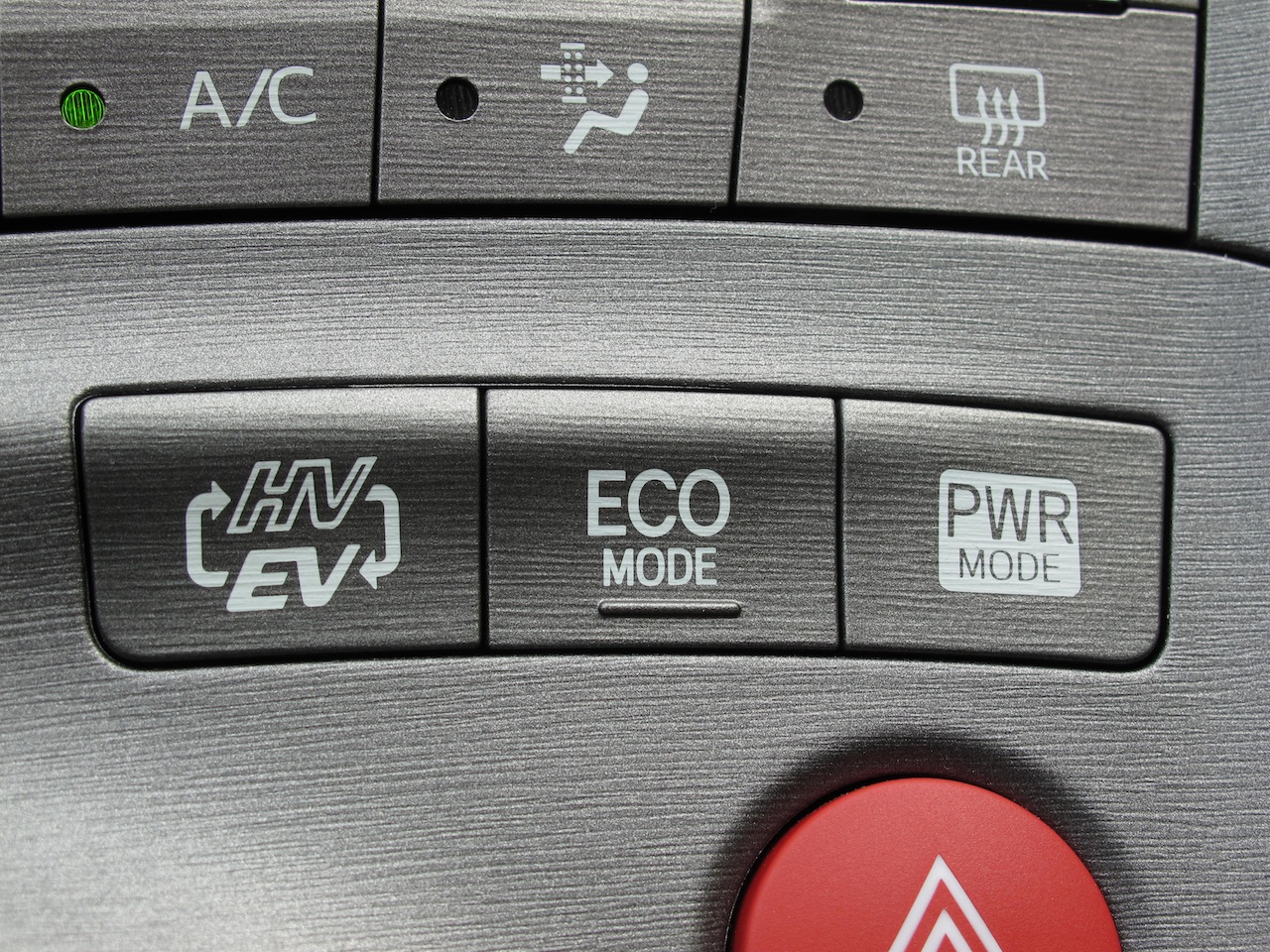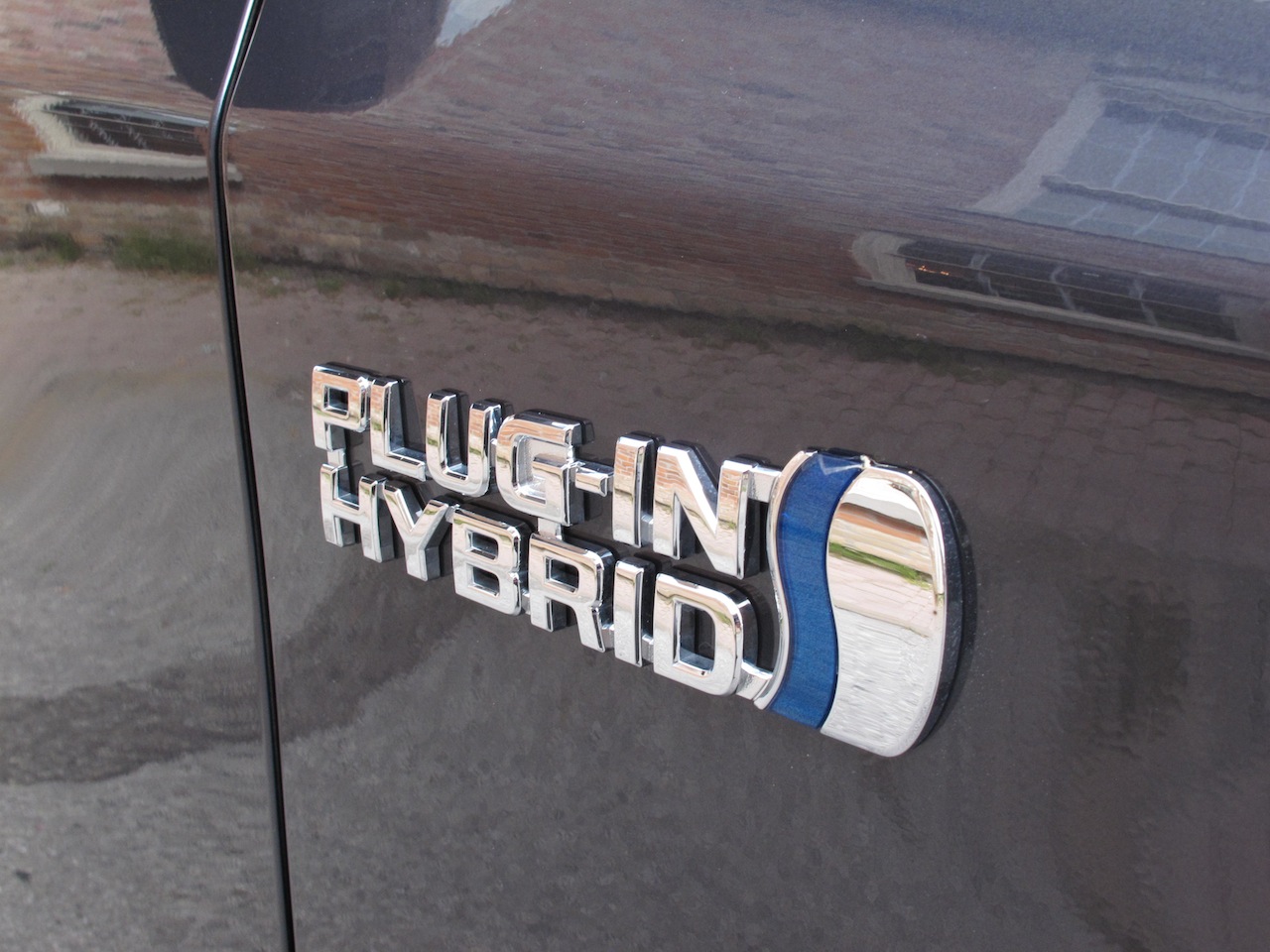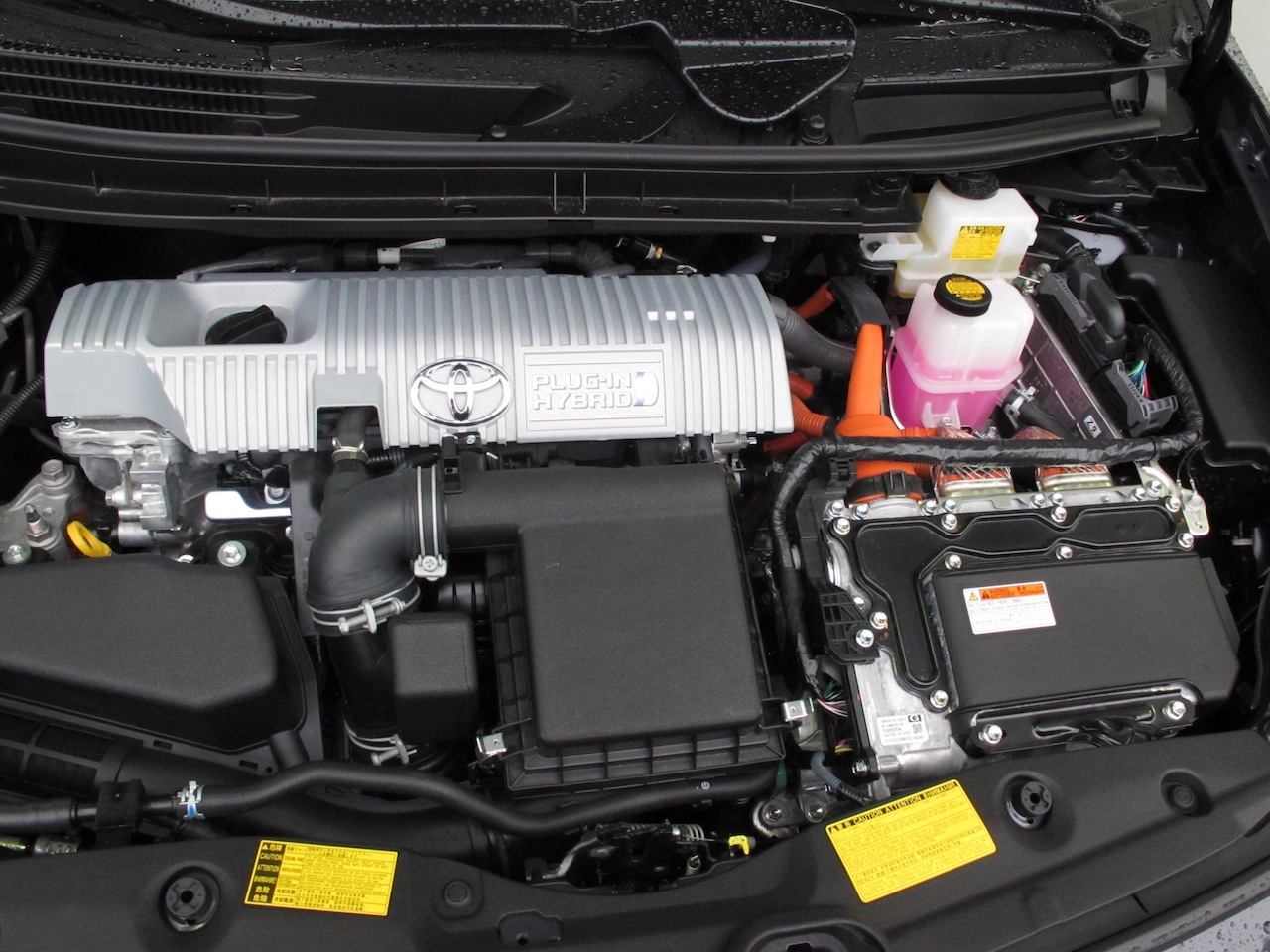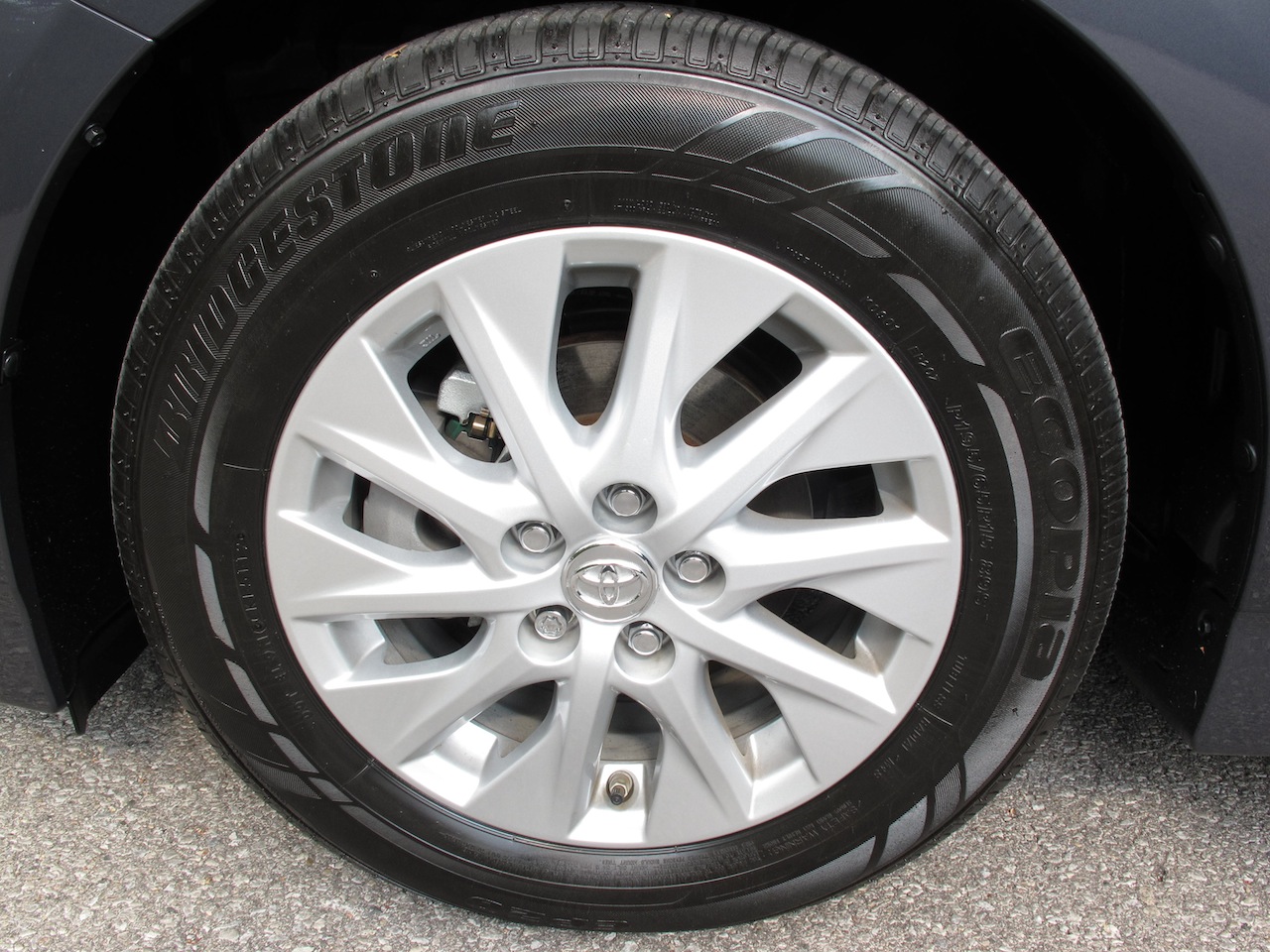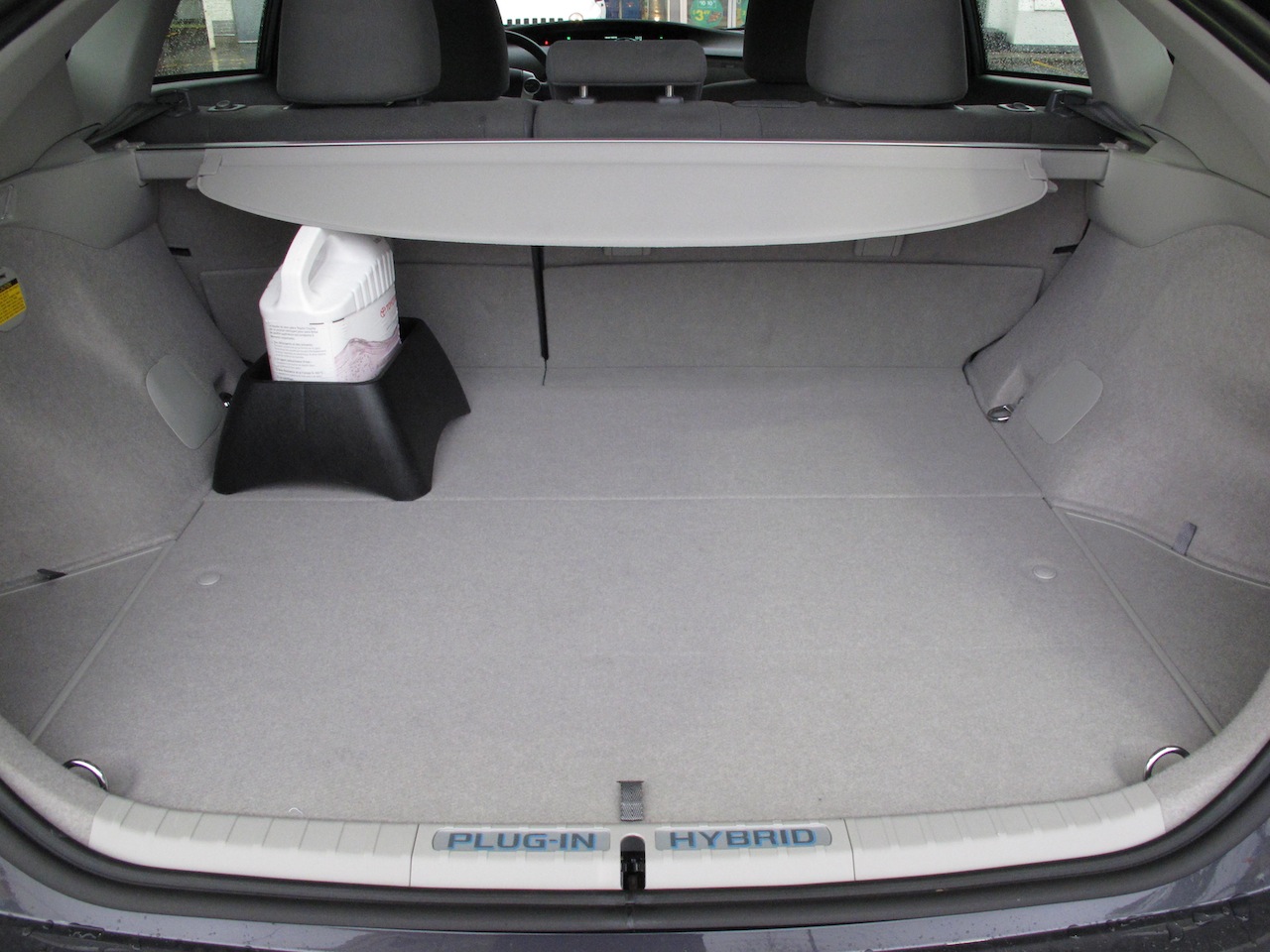
2013 Toyota Prius Plugin Hybrid
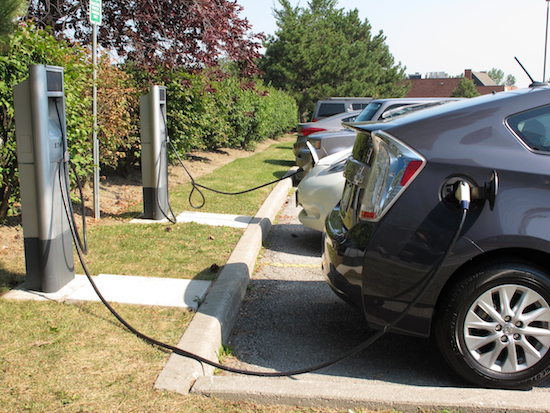
Written by: Sammy Chan
Photography by: Sammy Chan
You've all heard and read about Hybrids and a good number of you are driving one as well. According to Toyota Canada, Canadians have bought 77 thousand of their hybrid vehicles as of April this year and they have sold 5 million worldwide. But what about Plug-in Hybrids? It's a pretty new term though Canada's first Plug-in Hybrid vehicle, the Chevrolet Volt had been on sale in Canada as early as 2011.
Like Hybrids, Plug-in Hybrids have a gasoline engine, can operate solely on electric power and will automatically switch to burning fuel once all the electric juices are consumed.
But unlike Hybrids, Plug-in Hybrids DO NOT need or rely on a gasoline engine to survive, well at least theoretically. As long as the battery is being fully recharged every 25 km (Prius PHV but varies amongst other plug-ins) of distance travelled, you can throw away your Petro-Canada, Esso and Shell cards. Heck, not only will you not need to worry about oil prices anymore, even Hydro bills too? Why? Because you can use some dedicated charging stations like the one at Richmond Hill Town Centre parking lot for FREE! Check my photos, I was there at least three times the full 7 days I had the Toyota Prius PHV and didn't spend a cent.
The Toyota Prius PHV (PHV stands for Plug-in Hybrid Vehicle) is the latest and certainly will not be the last to be added to the Prius family. Future Prius additions will definitely include a pure electric version much like the Nissan Leaf, Ford's Focus Electric and the Teslas.
MSRP of Prius PHV starts at $35,700. Current Prius owners will notice this is a lot more than their non plug-in hybrid. Actually, PHV costs $9,600 more than the $26,100 Prius it is derived from. The near 10 grand mark-up could be blamed on- a lithium-ion (56 cells) instead of a Nickel-Metal Hydride battery, standard Navigation system, XM Satellite radio, heated front seats and auto-dimming rearview mirror (latter three are all extra charges on the Prius).
The number one question you are entertaining right now must be "Is the extra cost justifiable or in other words, will it be recaptured through fuel savings over the course of ownership?" The answer is a definite "YES" but with qualifications.
According to the 2013 Fuel Consumption Guide published by Natural Resources Canada (NRC), the annual $ cost for operating the Prius PHV on gasoline alone is $980 but this amount will be drastically reduced to $449 if running a mix of gasoline and electricity. NRC's calculation is based on an annual driving distance of 20,000 km with a mix of 55% city driving and 45% highway driving. Furthermore, its forecast price for gasoline is $1.29/L for regular gasoline. An annual savings of $531 per year will translate into $5,310 over 10 years and $7,965 over 15 years.
But what if I recharges it for free every 25 km I drive? Theoretically, I will save $9,800 in just 10 years, that's what I meant "with qualifications".
There are also things that money cannot buy like zero carbon dioxide emissions when driving solely on electric power hence your valuable contribution to planet earth and the fun of being able to drive alone on an HOV lane! Only Plug-in Hybrids and pure Electric Vehicles qualify for a "Green" license plate in Ontario. This "Green" plate will give you the privilege of driving without passenger(s) on all HOV people movers. In addition, you are also allowed to park your green vehicle at many parking spots usually reserved for the physically challenged, how neat.
Styling-wise, there's no discernible differences between the Prius PHV and Prius, both are classified as Mid-size vehicles by NRC (Surprisingly, the larger Chevrolet Volt is deemed a Compact vehicle due to its smaller interior volume). An extra "fuel" filler cap on the right rear as well as "plug-in" badging on the front fenders are the only visible ques.
The 1.8 litre DOHC 4-Cylinder engine it shares with the Prius is still an important and integral part of the Prius PHV. When combined with the 60-kilowatt electric motor, this engine is capable of generating a net total system output of 134 horses and 153 lb-ft of torque. Prius's engine is of the Atkinson variety commonly adopted for Hybrids due to its capability of keeping intake valves open longer and as a result a lower fuel consumption and greater efficiency can be achieved.
Charging the Prius PHV is easy as long as there's a three-prong power outlet available at your disposal. An ordinary household AC 120V will suffice. Simply connect the supplied charging cable to both the driver's side charging port and the power outlet and leave it for around 2.5 hours and you've got a further 25 km driving range added to your "tank". Even better if you can find a public charging station like the one I frequented at Richmond Hill (Ontario) Civic Centre parking lot. A coffee break of 90 minutes (most charging stations are AC 240Vs) will get the job done.
According to NRC, the Prius PHV can achieve as low as 1.9 Le/100 km when operating in pure electric mode. You might ask "Shouldn't it be Zero (0) fuel consumption in that mode?". Yes, if your electric fill-up is free like in my case using the one at RH Civic parking lot. NRC did take your hydro bill cost into consideration and has a formula for converting your hydro cost to "gasoline" money. Each Le or litres equivalent as defined by NRC contains the energy equivalent of 8.9 kWh of electricity, in other words, a distance of 100 km city driving would cost you $4.77 if consuming gasoline but would cost you only $2.58 on your home hydro bill if running the PHV on EV mode.
NRC fuel consumption figures of Prius PHV: HV mode 3.7 / 4.0 / 3.8; EV mode 2.0 / 1.9 / 2.0 Le/100 km.
Switching between battery and engine power source is totally seamless. Driving in pure electric mode is actually more fun, not only is it eerily quiet, power delivery is so instant and addictive that will quickly change your views of electric vehicles altogether. Stepping on the accelerator pedal has a similar effect as triggering your power drill, imagine that!
Any speed over the 100 km/h EV limit will automatically switch to gasoline engine operation, same goes to flooring the accelerator pedal, during sudden acceleration, heater in use, when outside temperature falls below -10 Celcius or when hybrid system either gets too high or too low. You can also switch from EV to HV mode or vice versa anytime you want, but EV mode is best preserved for city driving.
Toyota's Star Safety System™ is of course standard in the Prius PHV. This system includes Vehicle Stability Control (VSC), Traction Control (TRAC), ABS, Electronic Brake Force Distribution (EBD), Brake Assist and Smart Stop technology.
An extra $5,235 in the form of Technology Package will further protect you with a Pre-Collision System which uses radar sensors to automatically apply the brakes when a high possibility of a frontal collision is detected. This package also includes Dynamic Radar Cruise Control, 7-inch Monitor, JBL audio, power driver's seat, SofTex®-trimmed seats, LED headlamps, headlamp washers, auto-levelling headlamps as well as fog lamps.
Interior is also an exact copy of the Prius. However, PHV has air intake vents on the side of rear right seatback as well as the front corner of left rear seat cushion to cool the hybrid battery.
Cargo capacity is the same 0.61 cubic meters (behind rear seats) albeit harboring a bigger and heavier battery. PHV compensates this by reducing the size of its fuel tank by 5 liters.
In a recent world rally event held in Monaco, the Toyota Prius PHV was honored the most fuel efficient hybrid and finished fifth overall of a record 113 entries. For more on the Prius PHV and the rally, go to www.facebook.com/ToyotaCanadaPriusPlugin.
Specifications:
型号 Model: 2013 Toyota Prius PHV
廠方建議售價 Base Price: $35,700
Price as Tested: $35,700
軸距 Wheelbase(mm): 2700
長闊 Length/Width/Height (mm): 4480/1745/1490
引擎 Engine: 1.8L 4-cylinder Hybrid Synergy Drive
最大馬力 Horsepower-HP: 134 Net Power
最高扭力 Torque-LB-FT: 153
波箱 Transmission: CVT
擺佈 Engine & Drive Configuration: Front engine, FWD
前懸 Suspension-Front: MacPherson strut, coil springs, stabilizer bar
後懸 Suspension-Rear: Torsion beam
煞制-前 Brakes-Front: Vented disc
煞制-後 Brakes-Rear: Solid disc
循跡操控系统 ABS/Traction Control: Standard / VSC / TRAC
油耗 Fuel Consumption (City/Highway/Combined)- Le/100 km:
HV mode 3.7/4.0/3.8
EV mode 2.0/1.9/2.0
輪胎尺碼 Tires: Bridgestone Ecopia 195/65R 17



